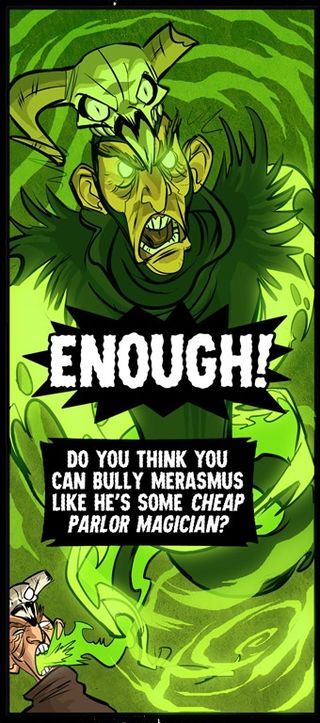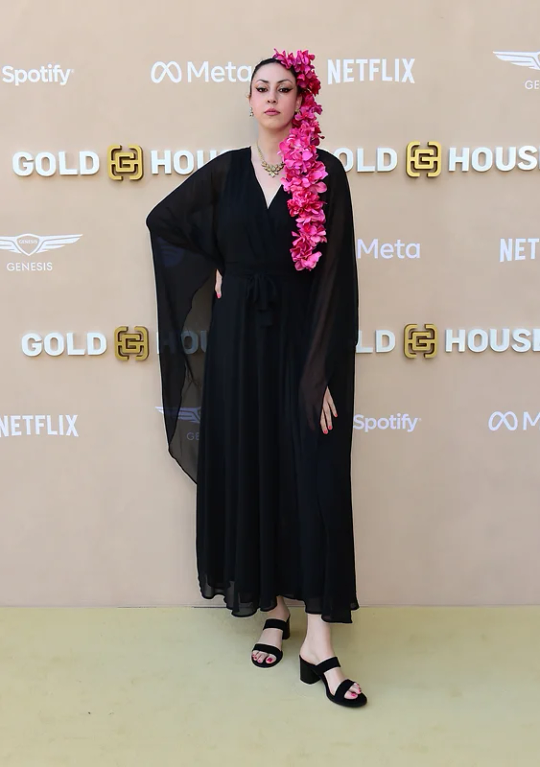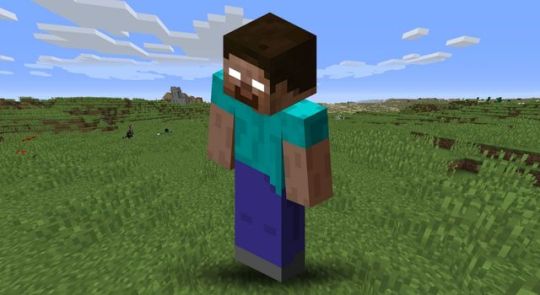#google submitted
Text
Submitted via Google Form:
Do you have any ideas on how to world build a massive overpopulated city but it isn't dirty or in shambles. Basically, everything is neat, clean and works well. Just a massive population density. I'm thinking 30k people per km2 with a total area of 1200km2. When I find images or descriptions of such high density populations I often see buildings that kind of look all rundown and slummy (not to mention high crime rates and poor if not in poverty) Or is that like.. impossible if you have such a massive crowd in one spot?
Tex: “Overpopulated” implies “more residents than the infrastructure can accommodate”. What’s considered dirty or in shambles is the result of a garbage disposal system that isn’t structured to the amount of residents + guests (tourists, relatives, holiday-goers, etc).
To have a city or other area properly equipped with the amount of employees to maintain sanitation and employees to repair buildings degrading over time, it must have properly-allocated funds, and enough of it. This is at its core a governance and taxation issue, not a morality issue of “just don’t make it dirty”. Crime and poverty are the natural result of neglect by one’s government, both at a local and larger level, which requires a lot of forethought in the amount of space an individual needs to live in private and public spaces.
Utuabzu: I’m going to assume you want a prosperous city with very high density. Happily for you, there are many examples of this in the real world. Density occurs when the demand for living/working space in an area is greater than the physical space available, meaning it is worthwhile to create more space by building upwards. This naturally occurs in the centres of all cities, because proximity to one another is a big draw for both people and organisations. In the absence of any limiting factors, this is usually counterbalanced by cost making it cheaper to build outwards and simply accept longer travel times, resulting in a relatively gradual gradient of density from rural periphery to urban core.
You get greater density when there are limiting factors on outward expansion. These can be geographic, like in the case of Singapore, Hong Kong and Manhattan (all islands), legal, like in the case of Vancouver, London and many other cities (laws and policies preserving green belts or valuable farmland), or political, such as was the case for Hong Kong and still is for Singapore (an international border acting as a constraint). Often it’s more than one of these. While places like Kowloon Walled City can exist - and it in particular is a very interesting case study in urban form - for the most part very high density occurs when people want to live and work somewhere, which usually means it’s a pretty nice place to be (at least in comparison to the other options anyway). Tokyō is the world’s largest city, with 36 million people (11 million more than the entire continent of Australia), but I don’t think I’ve ever heard anyone accuse it of being dirty or in a shambles.
It is also worth noting that density doesn’t necessarily look like skyscrapers towering overhead. Paris has a population density of almost 25k/km² when one excludes the outlying woodland park areas, and is predominantly mid-rise buildings. The 11th Arrondissement of Paris outdoes what you ask for, with a population density just under 40k/km², and is mostly historic midrise buildings. Other European cities like Barcelona, Naples and Thessaloniki have a similar development pattern, largely due to having been built mostly before elevators existed or were commonplace, which naturally limited building heights to around 5 to 6 floors (any higher becoming increasingly impractical for the sheer number of stairs).
Feral: The International Residential Code has the minimum size required for a house to be 120 sq ft/11.1 sq m. That’s a pretty standard secondary bedroom size in suburban USA. Your population density would have one person per 33.3 sq meters, which sounds great except that doesn’t account for any non-residential use space. Given your desire for the entire city to be exceptionally well-maintained, free of crime, and presumably a wonderful place to live, that means you need great air quality, multiple green spaces, art, food, entertainment. And your city’s overall size is massive. It’s 20.5 times the size of Manhattan, 11.3x the size of Paris, and 1.6x the size of Singapore - to name a few of the cities brought up in previous answers. This kind of sprawl does not make for good urbanization - just ask the city of Los Angeles, which is almost exactly the same overall size as what you’re aiming for but has a tenth of the density.
A few articles to get you started on density, urbanization, and sprawl:
Cities Really Can Be Both Denser and Greener by Emma Marris
Is There a Perfect Density? By Michael Lewyn
When is density good, and when is it harmful to cities? By Philip Langdon
Making cities more dense always sparks resistance. Here’s how to overcome it. By David Roberts
23 notes
·
View notes
Text

Propaganda below the cut:
Actual play DnD podcast by the brothers McElroy (and father)
#The Adventure Zone#poll#fiction#actual play#D&D#comedy#fantasy#This is the 537th Google Forms submission and the 446th podcast we've posted and from the 9th day of submissions.#I can only assume everyone else assumed it was already submitted because this is Tumblr.
44 notes
·
View notes
Text

may’s This is Not A Video zine theme is METAMORPHOSIS
as always, all types of art and writing are welcome! message me with any questions
submissions will be due APRIL 27th
#i’m going to add a google form to submit to this time! it’s a trial run so if it goes bad i’ll go back to emailing#my art#graphic design#design#this is not a video zine#zine#illustration#zines#mixed media#poetry#writing#short story#mixed media art
28 notes
·
View notes
Text
Search engine comparision
Google: Three ads before the first actual result, which is not a helpful one. The following results also aren't helpful.

Bing: There are four ads, each so large that you have to scroll down to see the actual results (none of which are helpful).

DuckDuckGo: Two ads before the actual results. As usual, the actual results are the opposite of what I searched for.

Ecosia: No ads, but no helpful results. However, about 0.02 trees were planted as a result of my search.

Conclusion: It is impossible to find answers to difficult questions simply by using a search engine. However, out of the search engines surveyed, Ecosia had the fewest ads and most trees planted.
235 notes
·
View notes
Note
Starscream Transformers

#death note#starscream#transformers#(i hope the image is right! it seemed like there were a bunch of versions on google so i went with the first one that was on a wiki)#submitted
27 notes
·
View notes
Text

#merasmus#team fortress 2#tf2#tf2 merasmus#merasmus tf2#submitter asked to tag:#he's so fucking silly and pathetic. wet mop bastard man#no image submitted#no tags submitted#adoption poll#submitter asked for me to try to find two specific images#but i couldn't find them. i'm sorry#if they're not a character i'm familiar with#google image search is all i have
53 notes
·
View notes
Text
I think it’d be hysterical to do like,, a sparkling battle Royale bracket
like which shitty little gremlin is most likely to be shoved in a locker and which one is most likely to be the one shoving them into said locker
Just straight up channeling the wise words of Grunkle Stan “CHILDREN FIGHTING! I CAN SELL THIS.” Of course with no actual profit or anything of value being made because wtf even is this
#I guess it would be like a poll thing where people can vote on which shitling is THE MOST POWERFUL TM#and the said fanspawns in question could be like idk submitted via Google form or something because I only have the one 💀#not sure how I’d structure it tho#like would I have them duke it out by pairing? Like which INSERT PAIRING goblin is the most superior#or by faction ????#or free for all where I just let a randomizer choose the initial brackets#Spit takes#maccadams#maccadam#tfp#sparklings#tfp sparklings
29 notes
·
View notes
Text
EXCITING NEW TOURNAMENT.
I collect every single named character in septimus heap and make them fight and u all get to participate <3 just submit any character as long as they have a name. I don't care if they're a main character or not. If they have a name then put them in the poll <3
There's going to be ideally a bracket for every book + one at the end where all the winners get to fight. That's why I need u to say what book they were introduced in in the form it's so I can sort them like that
Propaganda not only allowed but HIGHLY encouraged this is the dumbest idea I've ever had I need smth to make it even sillier
Rules r in the form but also extra rule. U have to be super niceys to me or I'll cry <3
#septimus heap#idk what else to tag this tbh#uh#marcia overstrand#alther mella#silas heap#simon heap#<-just tagging random characters tbh#jenna heap#there will one day be a google doc u can look at to see if ur character has already been submitted#but u could always submit again for extra propaganda#<-DON'T submit them like a bunch of times in a row tho
89 notes
·
View notes
Text

#kevin#dogs#polls#submitted#fantasy-costco#from submitter: The hypoallergenic bichon frise image from Google search results?#results: kevin
21 notes
·
View notes
Text

Image description: an ao3 tag that says "i accidentally wrote this on my school account's google docs so that'll be fun to explain"
#submitted tag#ao3#ao3 tag#ao3 tags#submission#i accidentally wrote this on my school account's google docs so that'll be fun to explain
149 notes
·
View notes
Text
Submitted via Google Form: Vegetarian Planet (Double Question)
Mod Note: We received two questions very close together on the same topic, but aren't sure if they are from the same Asker. We answered them both in this post.
I want to have a world where the entire population across the planet is vegetarian. As if, it never occurred in all of history to make animals food. Perhaps the main religion is extremely adverse and that's one of the main tenets and for some reason has never changed even when people spread far and wide. Is that possible? Maybe the animals are seen as gods maybe so couldn't be considered food. Or maybe all the animals are like toxic and not fit for consumption or otherwise undesirable compared to plant food? Is that also possible? Perhaps a combination of these? But how about the early people long before proper civilisation?
Tex: Some clarification questions I have are 1) what species is your population, 2) what is your definition of vegetarian, and 3) how did your population evolve to the point of developing a stratified society where religion could be invented?
The first question is due to the fact that heterotroph species contain herbivores (eat only plants), carnivores (eat only meat), and omnivores (eat both meat and plants) (Wikipedia), because they cannot photosynthesize (phototrophs) or sustain themselves via decomposition of dead plants or animals (detritivores) (Wikipedia). Even disregarding humans, the evolution of carnivorous, omnivorous, and detritivorous species is critical to maintaining a niche ecology.
The second question is due to the fact that the term vegetarianism includes a spectrum of diets which only preclude the consumption of meat, but may or may not preclude the consumption of dairy products or eggs, or in some cases animals that reside in water (Wikipedia). This is a diet that is not ascribed to herbivores, who by physiology often cannot eat meat, but to omnivorous species such as humans that may conditionally take up a particular style of food consumption on the basis of one’s personal beliefs rather than a pragmatic restriction of locally-available food sources.
The third question is related to the concept that the shift in metabolic processes and energy efficiency associated with cooking food - particularly meat - enabled humans to evolve for a higher and more complex brain capacity, which might have been a preliminary factor in the development of society (Wikipedia, American Museum of Natural History, NPR). The less time spent surviving, the more time that can be spent to, well, spending time with others.
With these questions in mind, how does your population come to the conclusion to culturally change their entire diet - if, in fact, they are physically capable of eating meat in the first place in order to voluntarily exclude it from conscious consumption? What are the main driving factors of this decision, and how is it reinforced? Is this something that will last for thousands of years, on a broad scale, or possibly something that will last for a few generations, or among a particular social class, or within a particular geographical boundary? In either direction, why is this so?
Following on those thoughts, who is it that propels this idea forth into your population’s society? How do they come up with this idea? How does it relate to pre-existing culture? How are they marketing it to those who disagree with them? How resilient is this idea, and what societal settings prompt it to become the dominant cultural relationship to food over the contemporary, pre-existing relationship?
Addy: To have a species that has never conceived of meat as a concept is an incredibly far stretch, if we're talking about things from an evolutionary standpoint (and culture does evolve – it's non-genetically transmitted behavior, and it develops similarly to (but faster than) genetic evolution to fit the needs/influences of a group). The smartest creatures tend to be social animals that work in groups (ravens, humans, dolphins, orcas, dogs), and many of those are omnivores or scavengers. You do get some herbivorous intelligent creatures (elephants, parrots), but they, too, eat meat when it's available.
To put it simply, meat is an easily-digestible source of calories that is available year-round. Even deer will eat meat if given the chance. So to have a species that has never conceived of eating meat, not once in their entire evolutionary history, doesn't have a good model for comparison in our world. But this is fiction, and it doesn't have to be perfectly "realistic."
Maybe there was an ancient empire that imposed a no-meat rule on its territories, so eating meat fell out of common practice after a couple hundred years. Maybe you had something like mad cow disease spread through domesticated animal populations, so meat gained a sort of instinctive revulsion, like the kind of horror that people would feel at seeing a roach crawling on their food, or at the idea of eating maggots. Give that some time, and a population could just move away from meat as a food source, especially if they've got enough agricultural technology to grow good crops. Could be that people don't know that their ancestors ate meat, and that scholars can't make sense of some of the implements they find. Or it's a historical tidbit most people don't know about.
Humans (and human-sized creatures) don't have guts complex enough to digest grass and the like, so food preservation is key. I'd recommend looking into historical food preservation methods, with an emphasis on grains, fruit, etc.
But also, look at other stuff in fiction. Psionics, cyberpunk, dragons, telepathy, Excalibur, basically everything about pulp science fiction aliens… it doesn't have to be perfectly realistic by any sense of the word. The basic concepts behind Star Trek teleportation don't work, not in any way we know of. But that doesn't matter, because it's treated in-world as just a thing. The characters act like it exists, so the impossibility of it doesn't break immersion.
Whatever you write doesn't have to be perfect. People don't need perfect. Just take the premise you've got and work with it. Maybe they never ate meat, ever (or even if they did, that's not the cultural narrative). Maybe animal consumption is completely alien. What else do ya got? Do they still use animals for labor, like oxen pulling plows or cats to kill mice in granaries? What about butter or wool? Do domesticated animals exist in any capacity, or is that just not a feature in their society? If not, how does that affect their transport (maybe look at Inca messaging systems)?
Second ask: What would it take to have a world whose entire population (well almost - except aliens) of omnivores would actually be vegetarian? A world-wide religion? But even religion changes so much, it'll be difficult to regulate if the world doesn't have a single totalitarian government and that's one thing I definitely want to avoid.
Tex: Earth currently has an entire population of omnivores (humans) that aren’t vegetarian, and even with religions such as Hinduism, there still isn’t a hundred percent vegetarianism rate. This is likely because humans are omnivores, and even if they have easy, nutritious access to foods other than animal products, they will simply eat animal products because it tastes good to them.
No population is going to be strictly uniform because people are not strictly uniform, and the stricter a religion, the less likely it is to survive more than a generation or so at a time because it devolves into a cult-like structure. Ergo, even a totalitarian government will not be able to force its ideas onto a population - you’re more likely to see a deposed government than someone voluntarily abstaining from, say, barbeque or fried eggs their entire life.
I think it might be helpful for you to examine why you wish to build a world that is so uniform in its population’s diet, and why that diet is not the full depth and breadth of what a species can eat, and if there are other frameworks that will allow you what you wish in a more feasible manner.
13 notes
·
View notes
Text

#TANIS#poll#fiction#<-Sorry not sorry I'm not gonna pretend this is real.#sci fi#mystery#horror#Interesting that The Black Tapes was submitted Day 1 and it took until now to get to TANIS and RABBITS hasn't actually been submitted#through the Google Form (it is on one of the mod's list though so we will be getting to it eventually).#I'm being mean. This is Mod Nic if you need to have someone you to disapprove of.
16 notes
·
View notes
Text
oh man a fun poll tournament would be "couples that can be read as butchfemme" with hits such as kermit and miss piggy, gomez and morticia, msr, etc
30 notes
·
View notes
Text
OPLA fan cast polls - Malia Arrayah as Kikunojo

Propaganda: Super tall and physical, yet super femme.

#one piece#opla#one piece live action#Kikunojo#opla fan cast polls#that second picture was added by me#because while the submitted one is very good at showing how tall she is it doesn't show her face very well#I hope it's the same actress though 😅 cause the submitter wrote her name without an h at the end#but when googling I could only find this specific actress and she is also very tall and looks like she could be the same#but I didn't come across the submitted picture when googling her 🤔
23 notes
·
View notes
Text

The bracket for the guy yuri tournament is here! All matchups were randomized, the tournament will start sometime at the beginning of next week (Wednesday 13th, most likely).
The most submitted ships were:
Crowley and Aziraphale from Good Omens, 7 submissions (whoa)
Luo Binghe and Shen Qingqiu from Scum Villain's Self Saving System, 4 submissions
Kim Dokja and Yoo Joonghyuk from Omniscient Reader's Viewpoint, 3 submissions
Sun Wukong and Macaque from Lego Monkie Kid, 3 submissions
Goro Akechi and Ren Amamiya from Persona, 3 submissions
The rest on this list got 2 submissions! Since there are 18 ships/couples in the bracket in total, 2 polls (one on each side of the bracket) will have 3 ships/couples in round one. I'm very sorry to all blorbos who didn't manage to get into the bracket, some of the propaganda you guys submitted was such a fun read!
#guy yuri poll#mod speaks#had to edit this twice since i forgot Destiel first and then realised Bruno/Abbachio also had 2 submissions not one#lmao. the second one isn't my fault btw someone botched their ship name in the form#+ didnt include names. guys the full names rule is stated in the google form for a REASON#i don't know most things you guys submit! including full names makes organising brackets so much easier!#ship names are fine but include the characters full names too! at least first names c'mon.#rant over. having some pita bread with chicken and veggies bye!#have a great day!
30 notes
·
View notes
